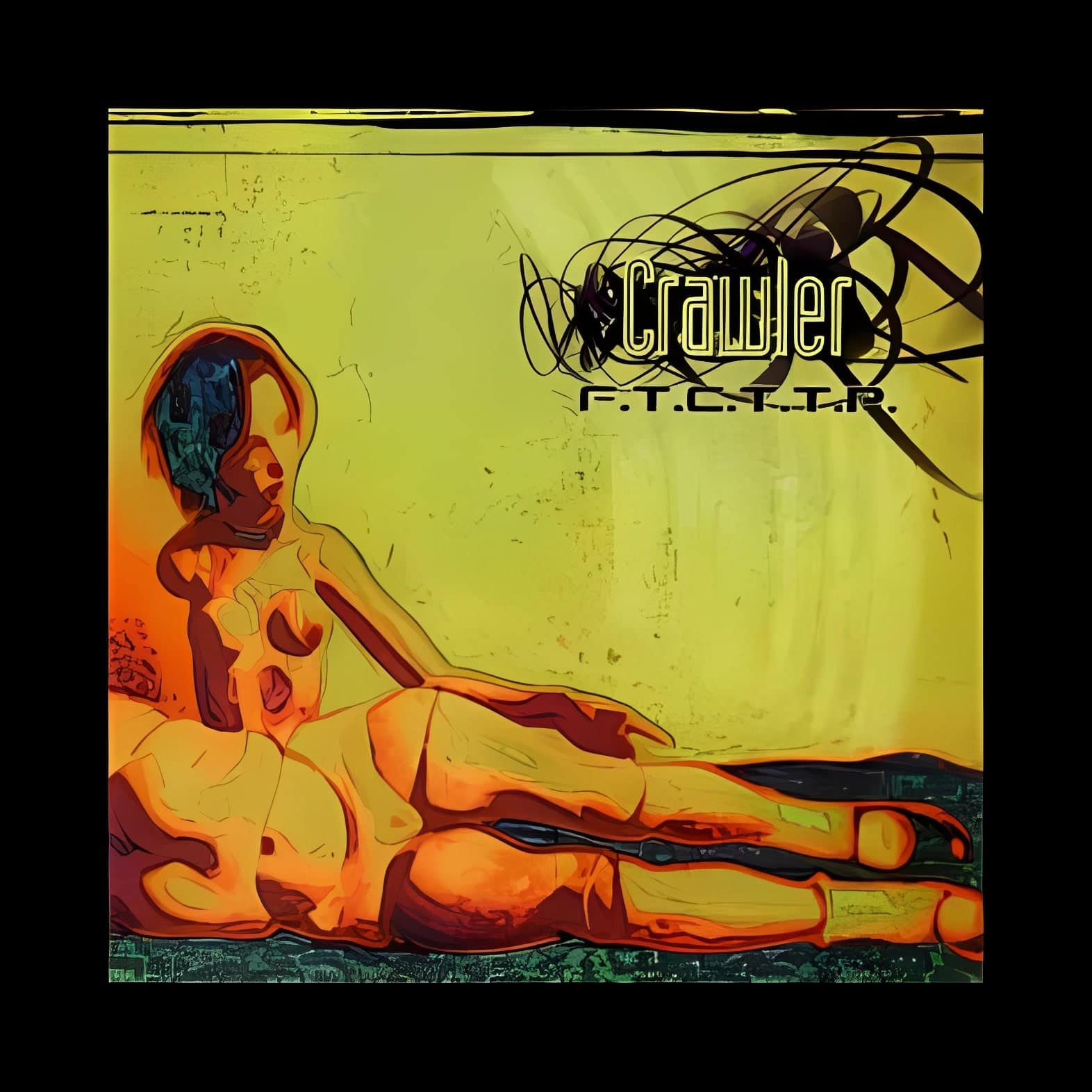Now there is a different kind of sound at The Grave – for a slight change of musical scenario. Hailing from Italy, CRAWLER were founded in December 1999 from a joint effort of people experienced in ‘Punk/Psychedelic/Noise/HC/Metal Music’.
The band’s email address (check the bottom of the review) should give you a hint at the music CRAWLER play: “Jumping Metal”. In the end, it all comes down to a different sort of ‘nu’, add a little crossover and there you have it. The current jumpers are Peppe (lead vocals), Antonio (guitar and lead vocals), Luisa (bass) and Exo (drums).
CRAWLER pay close attention to detail – such as lyrics. If, in the first demo, the lyrics reflected states of mind and social problems, in F. T. C. T. T. P., the title literally stands for ‘From the Chord to the Production’, as a mirror of the band’s effort in the creation of the present mini album. It is a good effort, given the style – not compulsory, though. The band announced the possible release of yet another 4-5-track album in the near future.
Official Site Crawler ! Myspace Crawlerit
Cover Crawler – F. T. C. T. T. P. Front
Additional Information
CRAWLER emerged from Italy’s diverse underground metal scene at the turn of the millennium, when the country was experiencing a surge of experimental bands blending traditional metal with punk, hardcore, and alternative influences. The Italian metal scene of this period was particularly notable for its openness to genre experimentation, with bands often incorporating elements from the country’s rich punk and hardcore traditions.
The band’s self-described “Jumping Metal” style reflects the broader trend of Italian metal acts during the early 2000s who were moving away from traditional genre boundaries. This experimental approach was characteristic of many Italian underground bands who drew inspiration from both the American nu-metal movement and Europe’s established crossover thrash scene.
F. T. C. T. T. P. represents the kind of conceptual mini-album that was common among Italian independent metal acts of this era, where bands often used shorter releases to experiment with new sounds and production techniques. The title’s focus on the creative process from composition to production reflects the DIY ethos that was prevalent in Italy’s underground metal community during this period.
